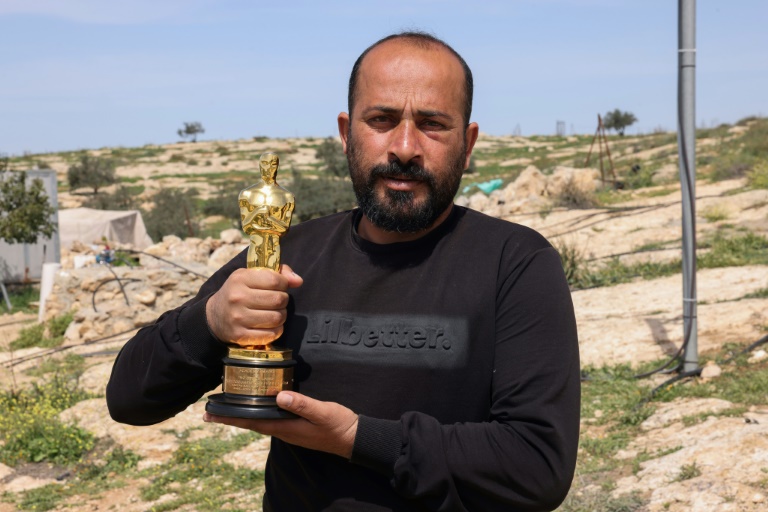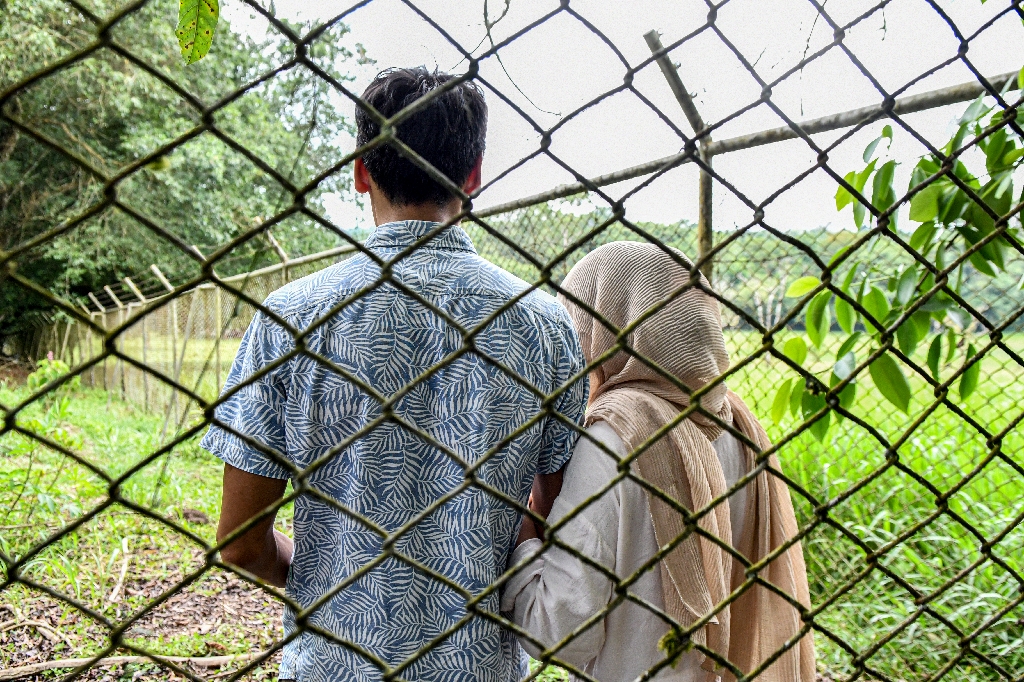Palominas (United States) (AFP) – John Ladd, who says he could ride a horse before he could walk, is a fourth-generation rancher from a family that arrived in Arizona when the border between Mexico and the United States was just a line on the map.
Now he views that frontier — and the thousands of people who spill across it every day — as a threat to his whole way of life.
“It rules how we run the ranch now, and that isn’t the most effective way,” he told AFP.
Ladd’s sprawling cattle farm runs right up against the wall that — at least in this stretch — separates Mexico from the United States.
When migrants sneak over the frontier, they pass onto his 16,000-acre (6,500-hectare) spread, leaving what he says is a trail of destruction — cut fences, cattle running wild and broken water pipes.
“I lose probably 10,000 gallons of water a week because they break a pipeline to get a drink and then just leave it to run,” he said.
“Half of my time is spent fixing damage from the people that are going through the ranch.”
– Murder charge –
Border patrol officers pass through his land looking for migrants who have crossed illegally, though most people think the patrols provide little deterrence.
One 75-year-old rancher is currently on trial for allegedly taking the matter into his own hands.
George Alan Kelly is charged with second-degree murder over the death of Gabriel Cuen-Buitimea.
Kelly says he fired his AK-47 rifle into the air when he saw a group of migrants he felt were a threat to him, his wife and their property.
One of the nine rounds hit Cuen-Buitimea in the chest, puncturing a major artery.
Prosecutors said Kelly, author of a novella about a border rancher turned vigilante against Mexican traffickers, acted deliberately, and was targeting migrants.
Ladd said he does not know Kelly personally but frets that a conviction would set a dangerous precedent.
“He was protecting himself and wife and his property. And one of the main things of America is being able to protect your private property,” he said.
Ladd added that even small land owners, not just ranchers, have “illegals going across their place.”
“They’re not going to be able to do anything to protect themselves. That’s what everybody’s worried about.”
– ‘Threatened’ –
The huge empty skies and vast plains of Arizona have always held a certain menace for people scraping together an existence far from the towns and cities.
When the West was wild and untamed, there were bandits here, taking what they wanted with threats or violence.
The 20th century brought a little more order, and a bigger — and better organized — state generally able to protect its taxpayers.
But for some who make a living among the purple-hued mountains, that protection now feels inadequate.
“We have felt a little bit threatened,” said Kyle Best, manager of the Marley Ranch in Amado, about 100 miles (160 kilometers) west of the Ladd Ranch.
“At night…you just go in the house and you don’t look out.”
Best said the insecurity, and what he feels is a complete lack of control at the border, will be a huge issue in November’s election, when President Joe Biden tries to fend off a challenge from former president Donald Trump.
“It is a problem for everyone…not only everyone who lives on the border, it’s a problem for the whole United States,” Best said.
“I’m not against immigration. Everybody’s families came here from immigration, but it needs to be done in a correct way. It needs to be dealt with and needs to be stopped.”
That’s a sentiment that Mike Gannuscio, president of the Arizona Cattle Growers’ Association, agrees with.
“We’re a nation of immigration and I respect them coming over here to work and I respect the ones that come over here lawfully,” he said.
“But you know, the surge is coming on the border. It’s not fair.”
All the ranchers interviewed by AFP said they would be voting for Trump in November, a man whose previous White House stint they associated with far lower levels of illegal migration.
Ladd stressed that it was not a simple issue of supporting one party over the other; he recognizes that politicians of all stripes have failed on the complex issue of immigration over the last few decades.
“My saying is, Republicans want cheap labor, Democrats want cheap votes and America wants cheap tomatoes,” he said.
Nor is it a matter of racism or xenophobia, Ladd said, adding that there’s a human cost to a migration process dominated by gangs of people smugglers.
“The people that are guiding (migrants) to America just leave them to die,” he said.
“And when you see a dead body on your ranch, that’s a game changer.”
© 2024 AFP




